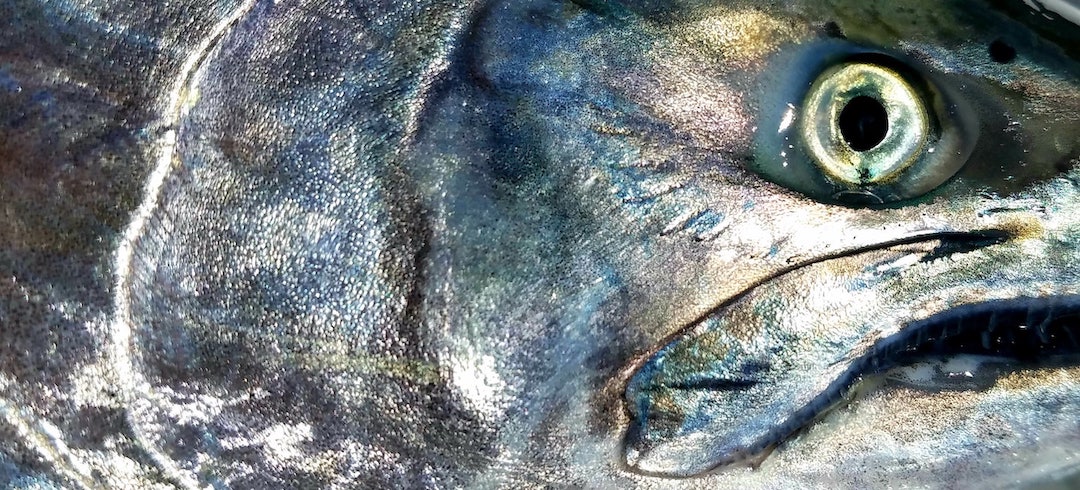
Enviros Push To Add More ‘Reform-minded’ Members On WA Fish & Wildlife Commission
Environmental groups are pressing Washington’s governor to “immediately” appoint two “reform-minded” Fish and Wildlife Commissioners.
It follows on the naming of two such individuals to the citizen WDFW-oversight panel early this year, but representatives of 12 organizations want more from Governor Jay Inslee and they’re striking while the iron’s hot.

In a September 22 letter touching on a recent “workplace culture” audit of WDFW, they say the appointments are “urgently” needed to “reform” the agency and “ensure that a full Commission is in place in advance of important upcoming votes on issues such as spring bear hunting, a new rule to regulate wolf management, a bold new conservation policy, and decisions on Commission leadership.”
Printed on the letterhead of the new Washington Wildlife First, other signatories include the Center for Biological Diversity, Defenders of Wildlife, Humane Society of the United States, Predator Defense, Northwest Animal Rights Network, Cascadia Wildlands, Kettle Range Conservation Group, Mountain Lion Foundation and others.
If Inslee heeds their wishes, he would be siding with a lineup that’s far, far more likely to be found in court litigating against his state’s fish and wildlife managers than working in the forests, fields and waters with them as collaborators.

SO WHAT’S THE RUSH WITH those five issues called out in their letter? We’ll take them one by one.
1) Spring black bear permit seasons are set by the Fish and Wildlife Commission every fall before the hunt and on Wednesday WDFW put out a call for public comments on 2022’s edition ahead of October and November commission meetings where it will be discussed and decided on.
WDFW estimates it will grant 664 permits – mostly in Northeast Washington and Blue Mountains management units – and that the season will result in 145 bears taken. The state is one of eight in the West with plentiful bruin populations and spring seasons.
Typically the hunt hasn’t been controversial, but Washington’s April-June 2021 bear season actually incited litigation. After commissioners approved it last December on an 8-1 vote, two sisters followed through on their lawsuit threat and sued to stop it.
Shortly before the hunt was set to open this past spring a judge ruled it could proceed, but one of Washington Wildlife First’s stated goals is to ban spring hunts. Another is “the elimination of trophy hunting.”
2) The future of Washington wolf management will be set by the commission in the coming years. Along with investigating predator species’ actual impacts on deer and elk in parts of northern Eastern Washington, WDFW is currently working on a plan for their post-recovery status, a periodic status review of the species, with a decision possible next May, and new wolf-livestock conflict rules expected to go out for public comment this fall.
Even as a stakeholder group of instate interests – the Wolf Advisory Group – has worked with WDFW to achieve hardwon wolf protocols, last September, after the Fish and Wildlife Commission declined to take their approach as too shackling to apply to specific situations, largely out-of-state wolf advocates got Inslee to tell the commission and WDFW to come up with “clear and enforceable measures” around tools used to try and ward off the predator’s depredations and de-emphasize their lethal removals.

3) As for that new conservation policy, which was publicly rolled out earlier this month, the initial draft is undergoing revisions after it drew pushback from some commissioners who questioned its verbiage, tone and flat-out rhetoric.
In a natural world undergoing increasing stresses, it aspires in part to redefine conservation from its traditional moorings in the North American Model of Wildlife Conservation and that has some hunters bristling.
I went looooooong on it last week, so I won’t belabor it here, but there’s also more below.
4) The commission is currently chaired by Larry Carpenter, a retired North Sound fishing boat dealer and longtime sportsman, but he’s in the letter’s crosshairs as his appointment technically expired last Halloween though he has remained the head of the citizen panel.
Election of the chair and vice chair typically occurs at the first primary meeting of the commission in odd years – which this January would have been right after Inslee added Fred Koontz and Lorna Smith, a sudden shift that caught the sporting world off guard – but leadership positions have gone unchanged. Barbara Baker is the vice chair.
Meanwhile, the commission’s ninth position has gone unfilled since the end of 2020. That’s not necessarily unusual, as the same situation occurred from August 2018 into August 2019, but this time it has left Eastern Washington with only two local representatives, rancher Molly Linville of Douglas County and birder Kim Thorburn of Spokane.
Per the commission’s RCWs, three members must be from west of the Cascades, three from the 509 side and three can be from anywhere except not the same county as another member, and in appointing commissioners, the governor “shall seek to maintain a balance reflecting all aspects of fish and wildlife, including representation recommended by organized groups representing sportfishers, commercial fishers, hunters, private landowners, and environmentalists.”
You can split hairs till the cows came home about commissioners’ representations given their myriad votes, but two more like Koontz and Smith, plus Baker, would make for a block of five, with Baker or Koontz the new chair.

5) AMONG THE DOZEN GROUPS SIGNED onto the letter to the governor are the likes of Center for Biological Diversity, Cascadia Wildlands and others mentioned in the past here on wolf depredations, listings, petitions, lawsuits and management in the Evergreen State, but Washington Wildlife First is a new entrant to the field, and its primary initial stated goal is to reform WDFW, an agency it says “has become focused on killing fish and wildlife, not preserving them.”
(Some Evergreen State hunters and anglers claim the exact opposite – and perhaps not entirely without merit – that WDFW has instead become focused on preserving fish and wildlife rather than angling or hunting for them; I see it more as being precautious where warranted while trying to provide opportunity.)
It is headed up by Vashon Island lawyer Claire Loebs Davis, who reports filing her first lawsuit against WDFW in 2017 over the removal of a Ferry County wolf pack for chronic livestock depredations, and its leadership includes several who are frequent speakers during Fish and Wildlife Commission public comment opportunities. Vice President Ronald Reed of Spokane also donated $2,200 to Inslee’s 2020 gubernatorial campaign, while his wife contributed $2,000.
WWF incorporated in July but its arrival on the public scene essentially coincided with the September 13 release of the Washington State Auditor’s audit of WDFW, which the organization said revealed “systemic dysfunction” within the agency and was “a wake-up call for the Fish and Wildlife Commission.”
That audit – a “first-of-its-kind” look at a state department’s “workplace culture” – rose out of the second-degree rape conviction and 10-plus-year prison sentence of a former high-ranking WDFW wildlife manager who broke into a coworker’s home following a 2014 office holiday party, and sexual harassment at an Upper Columbia salmon hatchery that saw four employees there fired in mid-2017 and WDFW lose a $2-plus-million-dollar contract from Douglas County PUD to operate that facility and another.

Per the State Auditor’s 101-page report, while investigators “did not find evidence of a highly sexualized culture” at the agency, they did discover “unprofessional behavior,” specifically “bullying in various forms.”
Auditors surveyed about 45 percent of the agency’s workforce and sat down with 222 staffers. They found 21 percent had been personally bullied and 30 percent had seen it directed at others, while 48 percent said they had neither been bullied or heard about any incidents. Twenty percent is the national workplace average for personal bullying, per a Spokane Spokesman Review article on the audit.
They also found “other problematic behaviors, including perceived discrimination, retaliation and legal or ethical violations.” The latter included “allowing the over-harvesting of game” and “untracked hunting permits” exchanged between managers
WDFW Director Kelly Susewind, who was hired by the Fish and Wildlife Commission after both sex scandals surfaced, embraced the auditor’s report.
“Together, at more than leadership levels within the Department, WDFW has undertaken a breadth of changes to improve our culture and create a respectful workplace. We’ve invested in a third-party reporting tool, hired a Diversity, Equity, and Inclusion (DEI) manager, increased training, increased internal communication throughout the agency, and established and deployed a set of core values that all staff are now working to abide by and stand up for,” Susewind wrote in a special statement posted the day of the report’s release.
Pat McCarthy, who heads up the state auditor’s office, stated in a press release, “The Department should be credited with welcoming this audit and fully participating. The results show agency leadership should stay the course. Improving an organization takes time and effort, and that is a lesson that can be applied across state and local governments in Washington.”

MEANWHILE, IN LAST WEEK’S LETTER, the 12 groups told Governor Inslee that with two more appointments like Koontz and Smith, he can “cement” his environmental legacy and “transform” WDFW “into an agency that embodies the ideals of conservation and preservation, allowing Washington to take a leading role in the growing national movement focused on wildlife governance reform.”
That language is a distinct echo of some of the theory behind the Fish and Wildlife Commission’s new draft conservation policy for WDFW, drawn up by Jeff Davis, the agency’s director of conservation policy and Koontz, and boiled down by Baker, and as expressed by Koontz during a September 16 meeting.
He said that the term conservation had originally been linked with “purpose and value” of species for humans, but current theory is that it “should be done in its own right. In other words, it doesn’t have to have a use of the animals.”
Koontz aspires to develop a model for a new brand of conservation that can be applied nationally and “help us move forward in what I call a more modern direction.”
He told fellow commissioners the new draft policy is “not in any way to discount our traditional partners and colleagues. It’s to broaden the mission.”
Many if not most of we WDFW “traditional partners and colleagues” recognize the huge challenges the natural world is facing, given longterm, all-encompassing habitat destruction and the horror we saw with 2014-15’s Blob, which I termed the story of the decade, care about it far beyond filling the freezer with venison and fillets, and want to help do something about it.
But trusting or wanting to collaborate with those who seem to sue WDFW at will or proclaim “we must turn around a system that maximizes hunting and fishing opportunity and redirect it to maximize preservation” is difficult for pragmatists such as myself.
Even more so when governor letter signatories Washington Wildlife First, the Center for Biological Diversity and other groups this week fired a shot at one of the holiest of holies of the North American Model – petitioning the federal government to withhold Pittman-Robertson Act excise taxes on guns and ammo meant to fund wildlife management and restoration work by state agencies.
They asked Secretary of the Interior Deb Haaland to make departments that “allow hunting and trapping at levels that compromise healthy populations of wildlife, including predators” ineligible to receive Pittman-Robertson funding.
To be clear, the move targets Wisconsin, where a wolf hunt went way over quota, and Idaho and Montana, where conservative state politicians passed laws allowing a range of tactics to be used on wolves. For context, in 2014 PR funds represented 10 percent of Montana Fish, Wildlife and Parks’ budget, a not insignificant amount.
It seems like a very long shot, but if this sort of funding weaponization gets traction, how soon before it might be applied to Washington?
Maybe this hook-and-bullet-and-habitat writer’s tinfoil hat is on a little too tight this week, but between that, the letter urging the governor to further alter the makeup of Washington’s Fish and Wildlife Commission ahead of votes on a new conservation policy and other issues, all of this rising together means there’s a lot to be paying attention these days.

Addendum, October 5, 2021: Maybe this hook-and-bullet-and-habitat writer’s tinfoil hat wasn’t on too tight. During the Friday, October 1, Fish and Wildlife Commission web conference, members were discussing their future meetings schedule when Vice Chair Baker made this statement about the planned November 19 workshop:
“[Deputy Director] Amy Windrope and I spoke last week. And this is not a decision but it is a suggestion that we do not have a workshop in November. We don’t plan it, we plan it for January in the hopes that we have a commission appointment by then, so that we don’t have our, another workshop right before we have a new appointment,” Baker said.
That potentially suggests a commission appointment from Governor Inslee around Thanksgiving; long holiday weekends are known for their news dumps.
The Zoom broadcast of the meeting showed commissioners and others on the call shifting in their seats almost in unison, though it might have also been due to the simultaneously breaking news from WDFW that a dead Quilomene bighorn ram lamb had tested positive for a deadly bacteria.
Baker was quick to add: “And none of us have idea, at least not so far as I know, when that appointment will happen or who it will be.”
